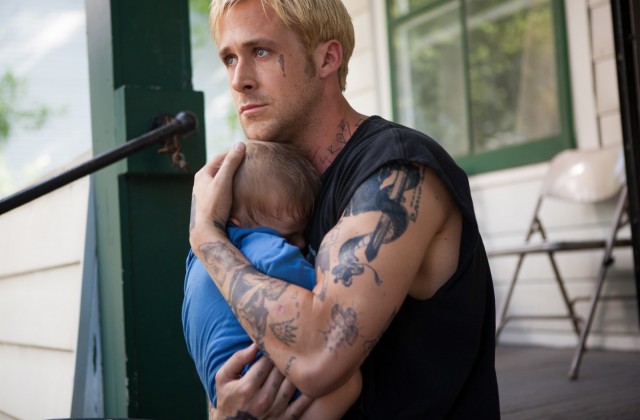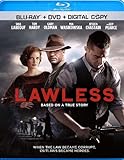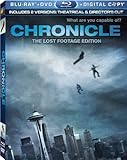The Place Beyond the Pines hits you hard but is kind of a mess

‘The Place Beyond the Pines’ attempts for high-concept parallel storytelling and is helped by great acting, but the themes are inconsistent and it kind of falls apart in the end.
It’s often said that history repeats itself. This doesn’t refer to specific events, but the way human nature doesn’t change and the same conflicts seem to keep happening again and again. History (and real life) doesn’t have story arcs or plot structure; it’s just life. Whether or not it has meaning is another matter altogether, and a bit beyond the scope of this review. Even so, there are some predictable ideas. Abuse begets abuse. The sins of the fathers are visited upon the children. And art reflects reality. Sometimes it’s a bit of a mess. But … I’m getting ahead of myself.
The Place Beyond the Pines is an odd little duck of a nearly two and half hour movie, from director Derek Cianfrance, telling several stories in a row that try to say something about humanity. We start with Luke (Ryan Gosling), an exceptionally talented stunt motorcyclist traveling from town to town in a carnival, who discovers he’s a father but the mother (Eva Mendes) doesn’t want him around. After all, Luke doesn’t really have a way to provide off the road and in the sleepy city of Schenectady (which translates to “the place beyond the pines” in Mohawk). So he turns to crime for the first movie of this movie . This puts Luke on a path to intersect with police officer Avery (Bradley Cooper), who then has an entirely new mini-movie of his own. Filled with corrupt cops (including the typically sinister Ray Liotta) and ambitious dreams, Avery has his own infant son to worry about as well. Parallels! After this second movie of the movie, we cut to fifteen years later, where we check in on these kids as teenagers and examine even more themes.
The movie is all over the place. Ryan Gosling is really excellent in the darkly romantic first third of the movie, and Eva Mendes is great, working hard for that pathos. But then it halts to tell Avery’s story (the way it all connects is too spoilery to mention) and tells an entirely different story about loss in a mildly subversive cop drama. These two parts seem to be speaking to the parallels of fatherhood between these two characters, and how compromises screw up when you’re trying to do the right thing. Bradley Cooper is also quite good here (with the aforementioned Ray Liotta), although it truly does seem like two episodes of a television show with a thematic arc, instead of a tonally consistent movie. Which this movie is not. Once we fast forward and see these boys (Dane DeHaan and Emory Cohen) grow up and give some pretty interesting performances. Dane DeHaan is superb, coming up in a slew of great roles last year (including Chronicle and Lawless) and Emory Cohen is decent enough, although he dips into parody a bit (nothing near his sullen nothing on Smash). It is in this final part of the story that the themes of the movie break down and it seems to be “life is screwed up and you’re screwed.” Sometimes great acting isn’t enough to save a muddled story.
The movie is trying to be profound and filled with “hard truths,” but because of its confusing structure, the message seems to be unclear. Should we be sad at how life goes wrong? Take any moral lessons? The movie seems to be all over the map. Now of course a movie does not have to have a message, but this one is clearly trying to convey something, and it doesn’t really give anything but some interesting performances and a few killer scenes. Those scenes might be affecting and draw you in, but there’s also a lot of wide expanses of Schenectady, NY, which is pretty but there doesn’t seem to be anything about the place relevant to the plot or theme. Perhaps the city is a metaphor for the movie as a whole.
 CliqueClack
CliqueClack


